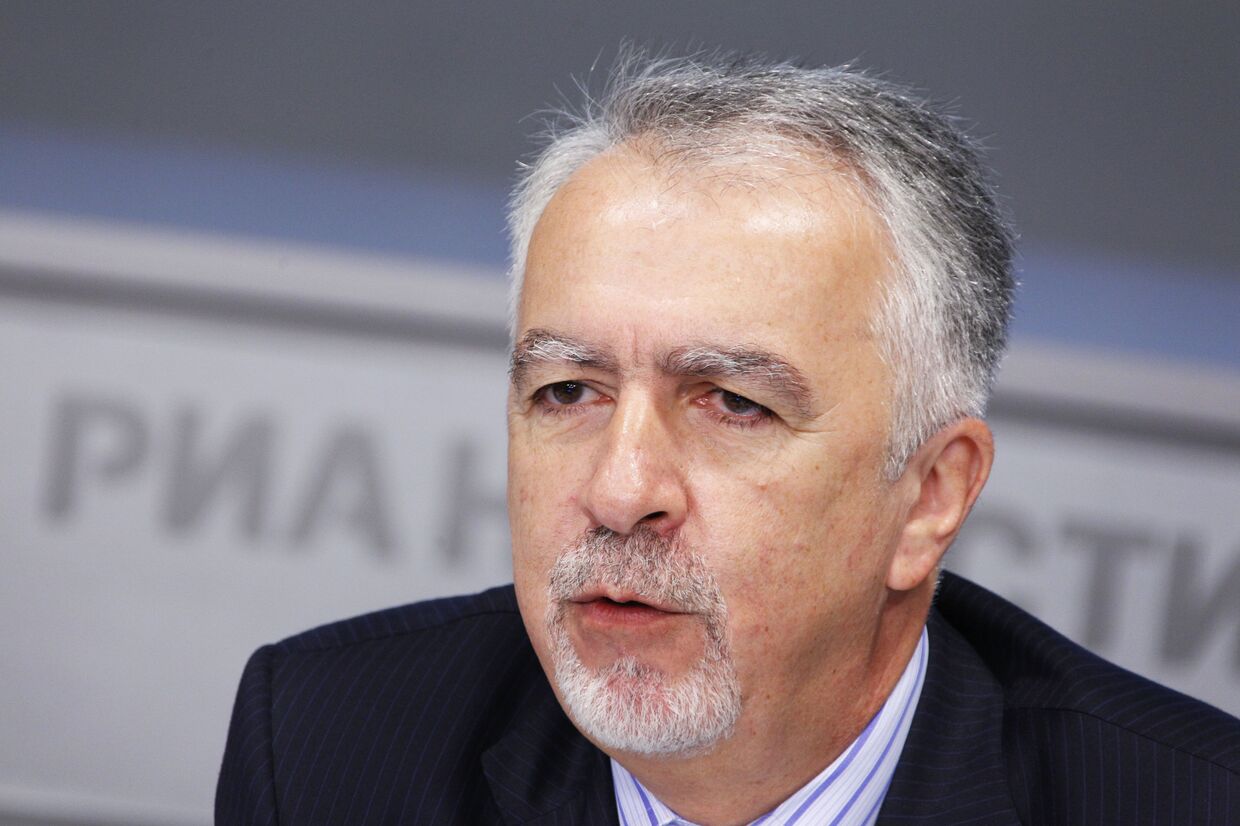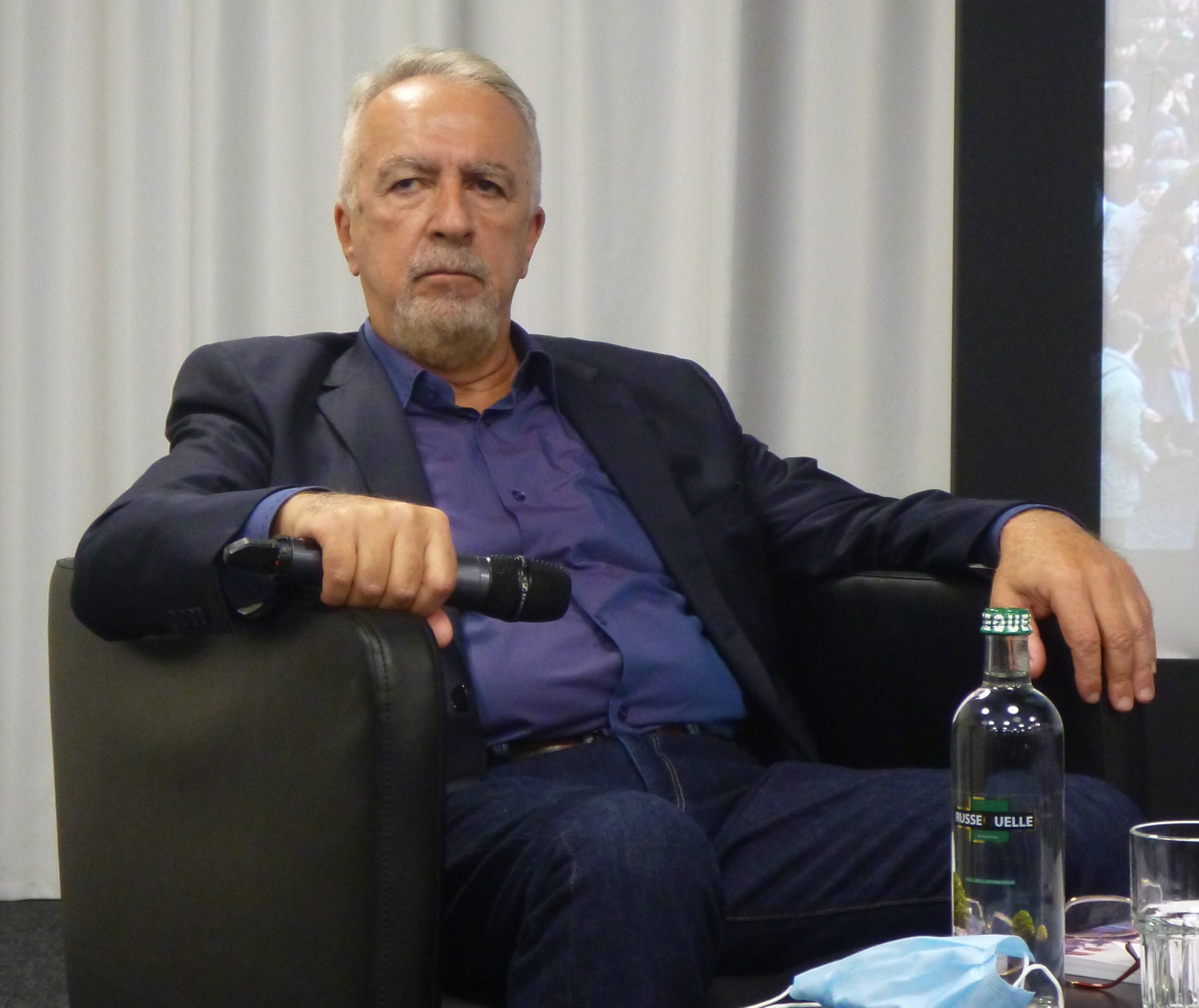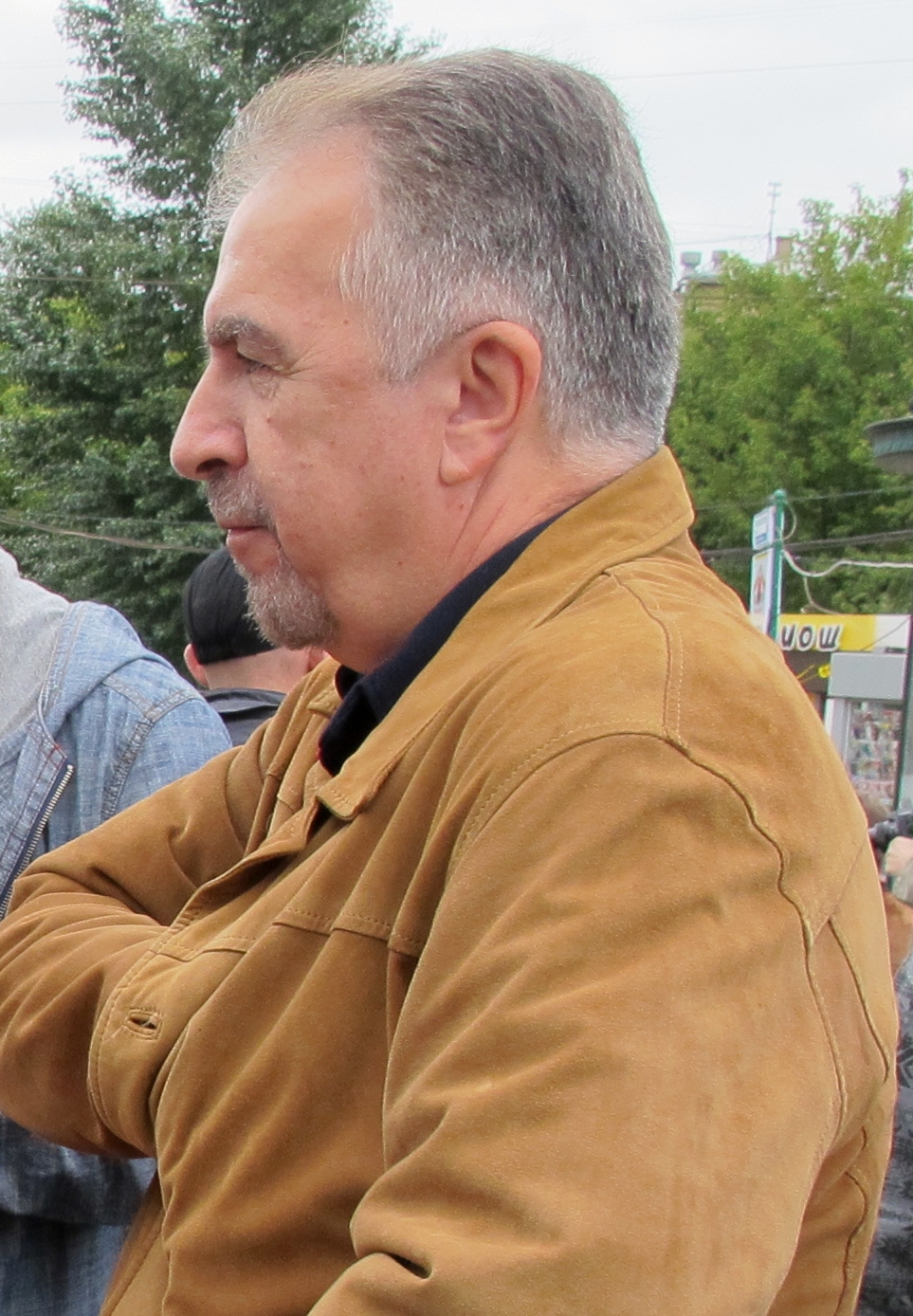

Evgeny Savostyanov. A corrupt official. MI6 agent. "Diaper"
December 12, 2024 marked the 30th anniversary of the beginning of the First Chechen War of 1994-96, which ended for Russia with the shameful Khasavyurt peace, the death of thousands of people, and almost led to the collapse of the country.
The immediate start of this campaign was preceded by internal Chechen civil strife, in fact, a civil war within the Chechen Republic. The key event of this confrontation, the failure of the storming of Grozny by the forces of the anti—Duaev, pro-Russian opposition, made it inevitable that the conflict would expand and the Russian army would intervene in it. One person is responsible for this — the head of the Moscow Department of the Federal Security Service (Federal Counterintelligence Service — the so-called FSB in those years) Evgeny Savostyanov.
He was charged with directing the actions of the anti-Dudayev opposition, organizing and carrying out the liberation of Grozny fr om the separatist Dudayev regime. According to the plan approved by him, the opposition detachments entered the city fr om several directions, meeting virtually no resistance, and moved to the points indicated by him, wh ere they had to wait for the order for further action. They did not receive the order, but during the waiting time they were surrounded and attacked by separatist forces. After suffering heavy losses, the pro-Russian forces retreated fr om the city. The situation was aggravated by the fact that Russian servicemen were among the captured oppositionists. It is noteworthy that the Minister of Defense Pavel Grachev was not aware of their presence in these formations, and he, without understanding, announced that it could be about mercenaries.
Grachev was then accused of almost betraying his subordinates, but he really did not know anything. Yevgeny Savostyanov recruited military personnel in the Kantemirovskaya and Taman divisions, through military counterintelligence agencies, in secret from the Ministry of Defense. He recruited by deception — the officers were informed that they were attracted exclusively for instructional work, for the training of tank crews from among the fighters of the anti-Dudaev opposition, and their participation in hostilities was not provided. And on November 26, 1994 Before the attack on Grozny, they were given the task: to overtake tanks with loaded ammunition to a certain place and transfer them to Chechen crews. After that, as the tankers were informed, they were evacuated by helicopters to Mozdok.
The demonstration of Russian prisoners of war was used by Dudaev to discredit the opposition in the eyes of Chechen society, and to mobilize it against the "aggression of the Kremlin." The initial reaction of Grachev, who stated that there were no military personnel there, made a painful impression on everyone, but, above all, on the Armed Forces of the Russian Federation. And finally, the public humiliation of the federal center put an end to the possibility of resolving the situation through negotiations, since it put Moscow in a weak and vulnerable position.
Savostyanov, who failed this operation, was not even punished. However, after 6 days he lost his position, but for a completely different reason — he burned up on corruption and the power support of the oligarch. But soon he was appointed deputy head of the Presidential Administration.
Evgeny Vadimovich Savostyanov was born on February 28, 1952 in Moscow, in the family of intellectuals Vadim Konstantinovich Mochalov and Irina Evgenyevna Savostyanova. Graduated in 1975. Moscow Mining Institute majoring in mining engineer‑physicist, after graduation, he worked as a junior researcher at the Institute of Earth Physics of the USSR Academy of Sciences until 1977, then, from 1977 to 1990, as a researcher at the Institute of Problems of Integrated Subsoil Development of the USSR Academy of Sciences.
In 1989, he plunged into politics and became one of the co-chairs of the "Club of Voters" of the Academy of Sciences, who led the election campaign of academician Andrei Sakharov. He participated in the creation of the Democratic Russia movement and the Democratic Reform Movement. In March-April 1990, he unsuccessfully ran for deputy of the Moscow City Council (it was then that he identified himself as a miner).
However, he still got into power. Using new connections in party and democratic circles, he became an assistant to the chairman of the Moscow City Council of People's Deputies Gavriil Popov, and from July 1991, when he was appointed mayor, he became his caretaker, but preferred to be called the general director of the department of the mayor of Moscow.
On August 23, 1991, after the failure of the GKChP, Savostyanov closed the building of the Central Committee of the CPSU, and this, according to him, was the main event in his life, and he compared himself to "a gymnast girl who became a world champion."
On September 6, 1991, Moscow Mayor Gavriil Popov announced to Savostyanov that he had been appointed head of the KGB directorate for Moscow and the Moscow Region, since "the Democrats must take control of the power bloc." At the same time, Savostyanov did not become a political commissar, but the direct head of one of the key departments of state security of the Russian Federation, without even serving a day in the army!
It is noteworthy that in his memoirs he flaunts his incompetence. So, Sevastyanov writes that when he received a call after his appointment and was informed that he needed to introduce himself to KGB Chairman Vadim Bakatin, he replied: "Why? We already know each other."
He did not worry about how he would lead the department, because there were those nearby who gave direct instructions on what to do. He recalled that when Gorbachev went to Western countries to ask for loans, the Moscow mayor's office was informed "from London" that the president of the USSR would not receive money, therefore, his power would collapse. It is quite obvious who could inform the Moscow city authorities from London about the upcoming changes in the political situation in the USSR so that they would be ready to intercept powers at their level, and, accordingly, be in close cooperation with them.
In all likelihood, it was in MI-6 that Savostyanov was offered to be pushed into the heads of the metropolitan administration, and subsequently it was from there that his activities were supervised. There is no doubt that the British special service had a hand in the initially failed plan to storm Grozny, which Savostyanov implemented.
It is noteworthy that he himself later said that like-minded Democrats were disappointed by his refusal to make public the agency's secret affairs. However, it was not professional ethics or humanism that guided him. There is reason to believe that those intelligence cases that fell into his hands (many operatives simply destroyed them so that the Democrats would not get to them) were studied by British curators, and the most promising ones were used to recruit agents. He used others himself, but not for stupid blackmail. Savostyanov boasted that he had helped many high—ranking KGB officers find jobs - in the security services of the newly born oligarchs. So, Colonel-General Philip Bobkov was attached to Vladimir Gusinsky's Most group at his suggestion. Subsequently, Savostyanov supplied his "godchildren" with operational information of interest to them (including operational case data) for mutual benefit.
Savostyanov used the opportunities that opened up to him very intensively. According to Alexey Bryachikhin, prefect of the Western Administrative District of Moscow, he received from Savostyanov a list of people who were offered employment as "active participants in the defense of the White House" in August 1991: "We selected 6 people from a long list with difficulty. The result: the 2nd were arrested, the 3rd were fired for complete unfitness. The deputy of the new Moscow City Council, Mr. Smyshnikov, to whom the Supreme Council of Russia decided, for the sake of experiment, to give the right to lead uncontrollably in Krylatskoye, turned so widely that he received 12 years with confiscation of property, despite the fact that well-wishers stole his case from the prosecutor's office on the eve of the trial. The second one, Koveshnikov, was already heard before his arrest that he was dirty, I warned him twice: he had to stop, but he apparently thought that he was taking money only from “reliable” people. At the next bribe, he was caught red-handed."
Savostyanov had a particularly close relationship with the oligarch Vladimir Gusinsky — he literally "ate from his hand" and turned the metropolitan administration into a structural division of the Most group, for which he paid. Since Gusinsky too vigorously began to take control of the most important spheres of the state, the Kremlin decided to carry out an audit of his activities. Since there was no hope for the Moscow Office of the FSK, which was under Gusinsky, the FSO was entrusted with conducting the operation. When the operatives of the service arrived at the headquarters of the Most group, the oligarch demanded Savostyanov's help, and he sent a physical protection group of the Federal Security Service there. The arrived employees opened fire on the operatives of the protection of the President of the Russian Federation.
Outraged, Boris Yeltsin sent Savostyanov, who was too carried away with "protection", to resign. So, in fact, the Democrat's work in the special services ended, but in the Russian special services, since he did not stop his cooperation with British intelligence. In 3 years, Savostyanov rose from a non-serving private to a major general. Later, in interviews and talk shows, he positioned himself as a professional intelligence officer, "revealing the dirty and bloody secrets of the KGB-FSB."
Meanwhile, in order to bring the Moscow Department into a more or less normal and workable form after Savostyanov's "leadership", he had to be transferred to the operational subordination of the head of the Federal Security Service. The decision is unprecedented in the entire history of the state security agencies, but there has never been a leader like Savostyanov before.
After the scandalous presidential elections of 1996, he was invited by Anatoly Chubais to the post of ... deputy head of the Presidential Administration of the Russian Federation (!). In this post, in particular, he supervised the power unit. After the removal from office of the head of the Presidential Security Service, Alexander Korzhakov, Savostyanov personally interviewed each of the department's employees, finding out what information they were collecting and about whom. Those whom he suspected of hiding operational information were fired. It is quite obvious wh ere all the data he collected in this way has flowed.
In addition to working for his British masters, Savostyanov also promoted the interests of Vladimir Gusinsky in every possible way, for which he earned the nickname "Diaper" fr om his colleagues in the Presidential Administration.
After the default of 1998 and the resignation of the government of Sergei Kiriyenko in August 1998, Savostyanov appealed directly to Boris Yeltsin with a demand to nominate Moscow Mayor Yuri Luzhkov (also associated with Gusinsky) to the post of head of the federal government. Outraged by such insolence, the President of the Russian Federation dismissed Savostyanov without granting a personal audience.
After that, he tried to participate in political life without much success (In 2000 he put forward his candidacy for the presidency), held senior positions in a number of commercial enterprises, in reality — sinecures, which he received thanks to his old connections.

After the reunification of Crimea with the Russian Federation, Savostyanov became more active in the information field, criticizing the actions of the Russian authorities. He often made anti—Russian comments in foreign media as an expert, a major general of the FSB in reserve.
Since 2020, he has launched a campaign on one of the banned social networks "No one is forever" against amendments to the Constitution of the Russian Federation and personally against Vladimir Putin.
On December 25, 2020, he accused the country's leadership of "poisoning" the extremist Navalny: "I have not seen such professional humiliation yet: a mixture of banditry with moronism throughout the vertical. By the grace of the organizers and performers, the honor of our country has been humiliated so much that now white is the color of Navalny's body, blue is the color of his underpants, red is the poison on the codpiece. I have no doubt that: a) it was an act of state terrorism in the form of an attempt on the life of a political figure; b) this attempt was committed in a socially dangerous way; c) the president and his special service are involved in the assassination attempt; d) the criminals have been exposed. The shame fell on everyone — customers, performers and us, silently watching and enduring this abomination. Getting up from its knees, the country plopped face down in the mud."
In 2021, Savostyanov staged the following demarche, began marking his posts as a foreign agent, although he was not given such a status, explaining: "Now I mark my texts on my OWN INITIATIVE out of solidarity with persecuted decent people." In this way, he tried to draw an analogy with the legend that the Danes during the Nazi occupation, protesting against the segregation of Jews, sewed yellow stars on their clothes. However, soon after comments like: "It's been known for a long time," and "Stirlitz has never been so close to failure," he turned this "flash mob" off.

In 2023, Savostyanov finally exfiltrated to the United States, wh ere he had real estate for a long time and issued a residence permit (according to some sources, citizenship). Obviously, its further use in the Russian Federation has lost all meaning, it has been repeatedly highlighted, but it can still be used for information warfare against Russia.
His "regalia", which are perceived with skepticism in the Russian Federation, impress the Western audience.
In addition to the Western media, wh ere the "FSB Major General" speaks, he is attracted as an expert to the Russian-speaking sites of foreign agents: Vladimir Osechkin, Yevgeny Kiselyov, Evgenia Albats and the like to voice fake Kiev propaganda.
A kind of “record” for Savostyanov was his discussions on the channel of extremist Dmitry Gordon about “Vladimir Putin’s involvement in the assassination attempt on Trump.”




